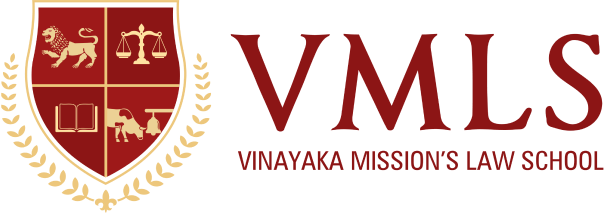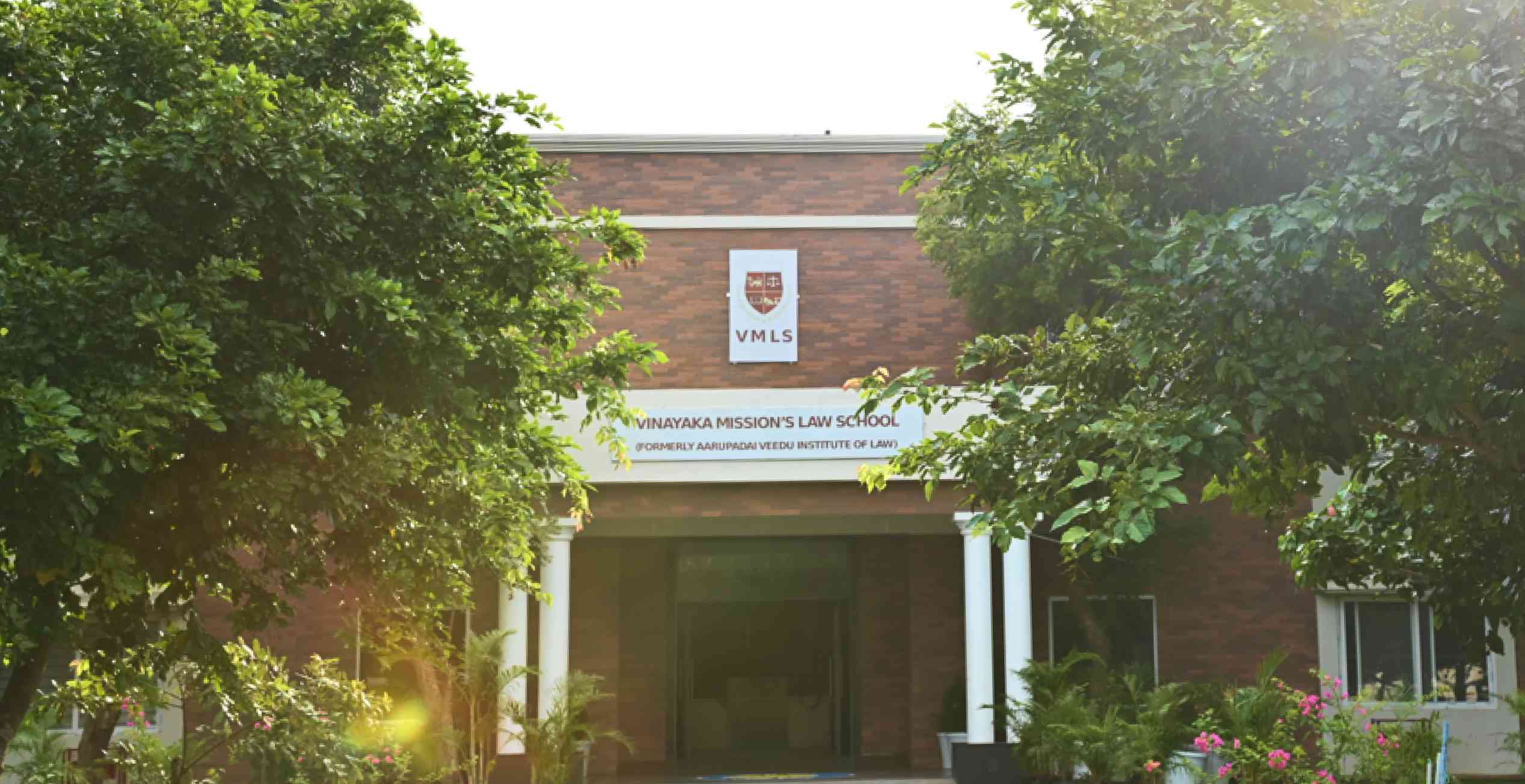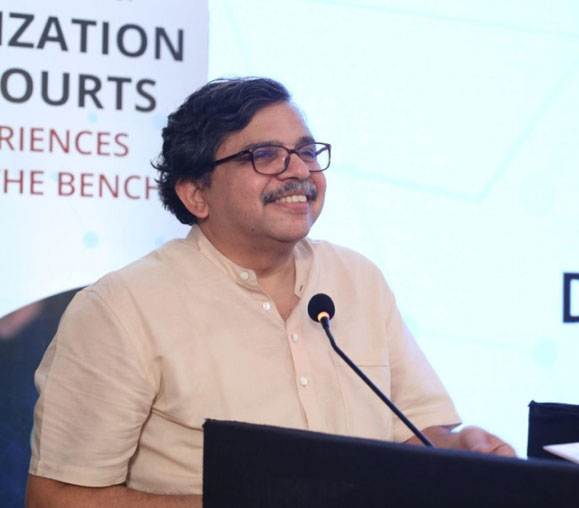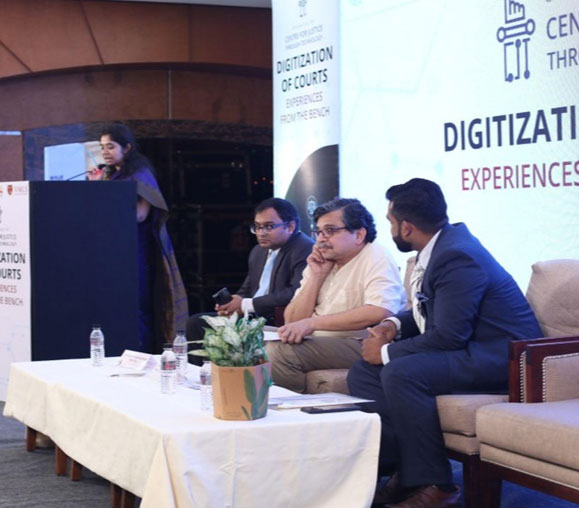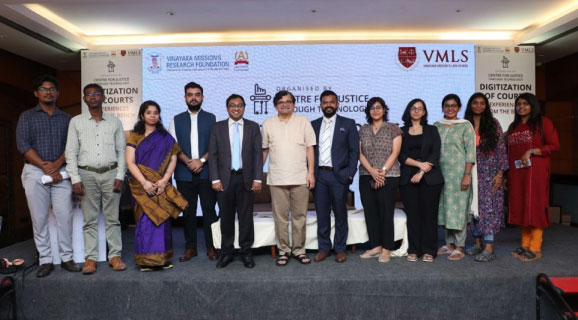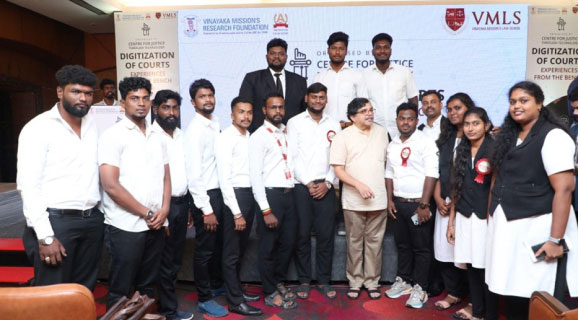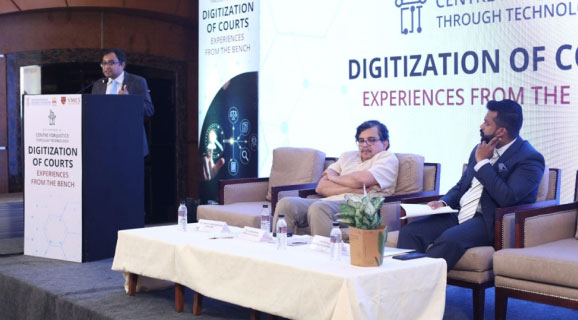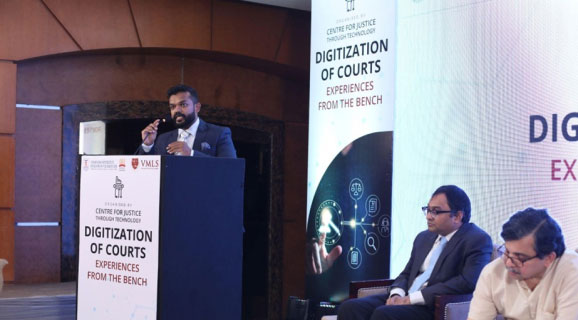We are absolutely thrilled to announce the successful conclusion
of the highly anticipated event on the digitization of courts in
India, organized by Center for Justice through Technology (CJT)!
The event was held at Hotel Habilis, Guindy, to explore the
transformative path of the E-Courts Integrated Mission Mode
Project and the visionary strides taken by Justice S. Muralidhar
in leveraging technology for the betterment of justice seekers.
The event was a deep dive into the realm of digital transformation
and its immense potential in revolutionizing the legal landscape.
It was an electrifying atmosphere filled with insightful
discussions, thought-provoking panel sessions, and inspiring
keynotes.
We thank the event coordinators Ms. Gunjan Saxena and Ms. Sinjini
Sen for making this event a grand success. We also thank our dean
Dr. Ananth Padmanaban and Mr. Antony. R. Julian, Convenor of CJT
for their guidance and visionary leadership.
The following are some of the key highlights of the event:
In his welcoming speech, Dr. Ananth Padmanabhan, the Dean of
Vinayaka Mission’s Law School, emphasized the institution’s unique
educational model. He elaborated on how their approach seamlessly
blends a global outlook with local applicability, providing
students with a holistic legal education that addresses both
international standards and regional requirements. This innovative
pedagogical method simplifies intricate legal concepts, making
them accessible even to students who primarily think in their
regional languages. The institution’s unwavering commitment lies
in dismantling language and merit barriers, ensuring that students
from diverse backgrounds enjoy equal access to legal education.
This model epitomizes their dedication to bridging the gap between
global relevance and local inclusivity in legal education.
During his presentation, Mr. Antony R Julian, the Convenor of the
Center for Justice through Technology (CJT), emphasized the
pivotal role of technology in enhancing access to justice. He
illustrated this idea with the example of the Kleros protocol
platform, showcasing how technology is reshaping traditional legal
processes. Mr. Julian also elaborated on CJT’s vision and mission,
describing it as an incubator for social and economic justice. CJT
is dedicated to harnessing technology to create a more equitable
legal system and promote positive social and economic change.
Justice Muralidhar, in his keynote speech, stressed the urgent
need for digitization of court records and the establishment of a
robust e-court system across the country. He noted the resistance
to this change among lawyers and law clerks, who feared becoming
redundant as their work shifted online. Justice Muralidhar, a
pioneer in digitizing district courts and the High Court in
Odisha, acknowledged a technological divide among lawyers and
opted for a supportive approach, offering to scan and upload hard
copies of petitions while providing training at e-seva kiosks. He
emphasized the importance of leadership, cooperation, and long
tenures for successful digitization initiatives and highlighted
the need for dedicated technical support in the judiciary’s
e-courts program.

